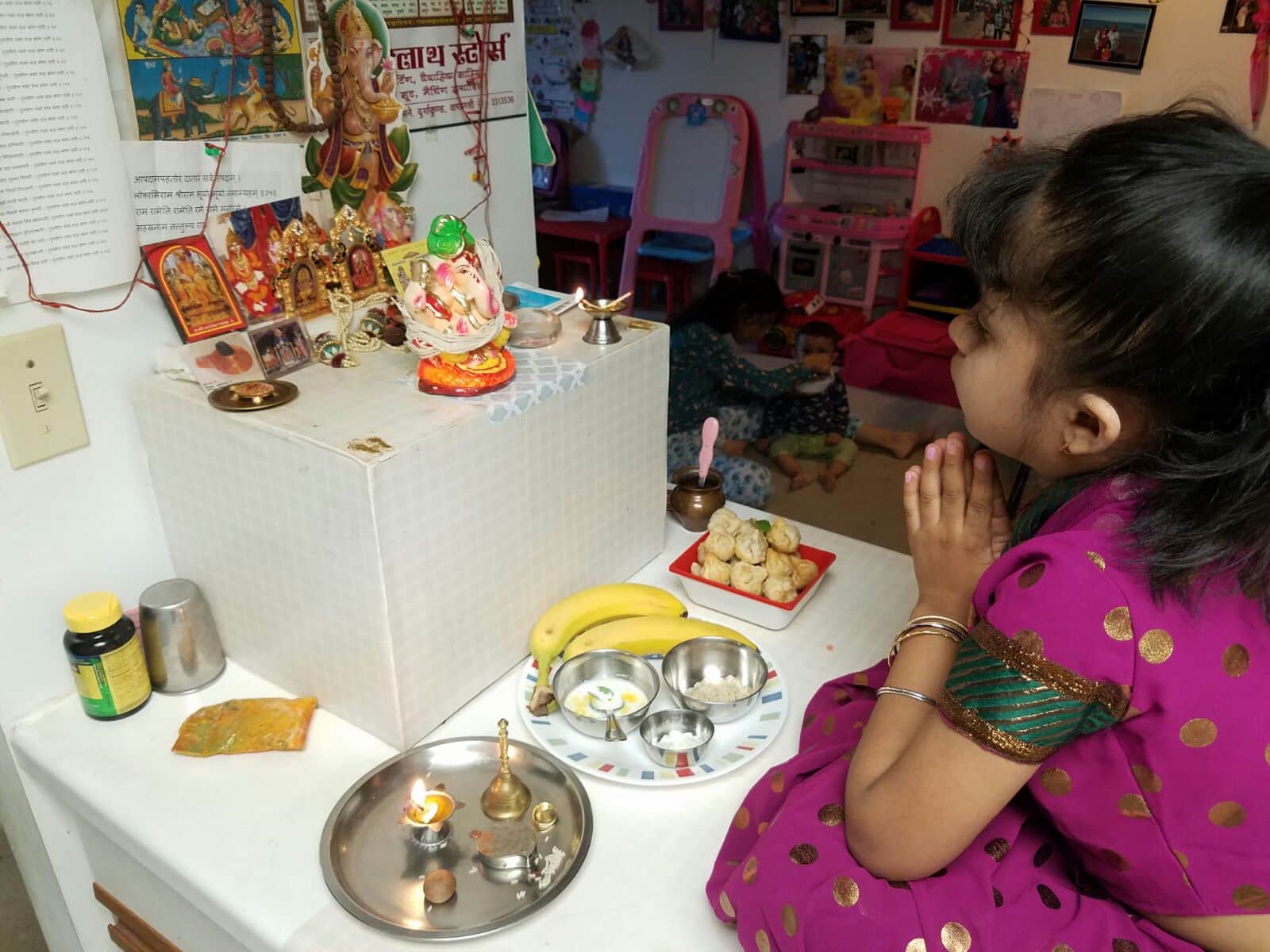Eat for Agni
वदनि कवळ घेता नाम घ्या श्रीहरीचे ।
सहज हवन होते नाम घेता फुकाचे ।
जिवन करि जिवित्वा अन्न हे पूर्णब्रह्म ।
उदरभरण नोहे जाणिजे यज्ञकर्म ॥१॥This shloka means oh lord, thanks for the food you have given me on my plate.
I accept this food as prasadam after offering it to you and praying.I thank all elements of this nature for this food.It’s not only hunger I eat its for the Agni energy to seek.
Sitting on floor
Sitting on the floor with legs crossed had been a ritual in India since ancient times. In my house, we still follow it, especially at all festivals. It has many health benefits such as-
- When you sit down and eat, your brain calms down and is better equipped to focus on the food you eat.
- Having a plate on the floor naturally tends to make us bend forward and back for every mouthful. This movement causes the muscles in our abdomen to be activated which helps in the increased secretion of stomach acids – making it easier to digest food.
- Helps our joints to be flexible. By sitting on the floor, we strengthen the lumbar region of the body.
- We are automatically in a yoga posture.
So do this yoga stay connected to Earth and travel to places to soothe taste buds.

In Maharashtra, while we sit on the floor and offer nevedyam we chant the above shloka and offer gratitude and be thankful for the food we are eating as a daily habit while consuming food.
Be thankful for the food we eat
If you have a plateful of food on your table, be thankful for the food. Remember the school days when we use to say the thank you prayer daily before eating our tiffins?
In many Indian households, we offer cooked food to a deity as naivedya, but it does not mean that we expect ‘God’ to actually eat it. Nivedana is the act of making it known. Nivedan or ‘Nivedyami’ means we are stating that means ‘I am making it known to you or ‘I am informing you That we acknowledge that the food we eat is a gift. To eat mindlessly without acknowledgment is traditionally considered rude.
It does not mean ‘I am offering you food’ or ‘I am feeding God’. It is our farmers who toil to grow that rice. As mentioned in Maitri Upanishad- ‘Annam brahmeti’ or ‘Food is God’ says it is considered a sin to reject or waste food. In today’s world, where food is a basic necessity it’s ungrateful to reject or waste food.
This is Fire Tatwa’s post, Do Check out my ‘Don’t waste your food’ poem here.

Leave a Reply